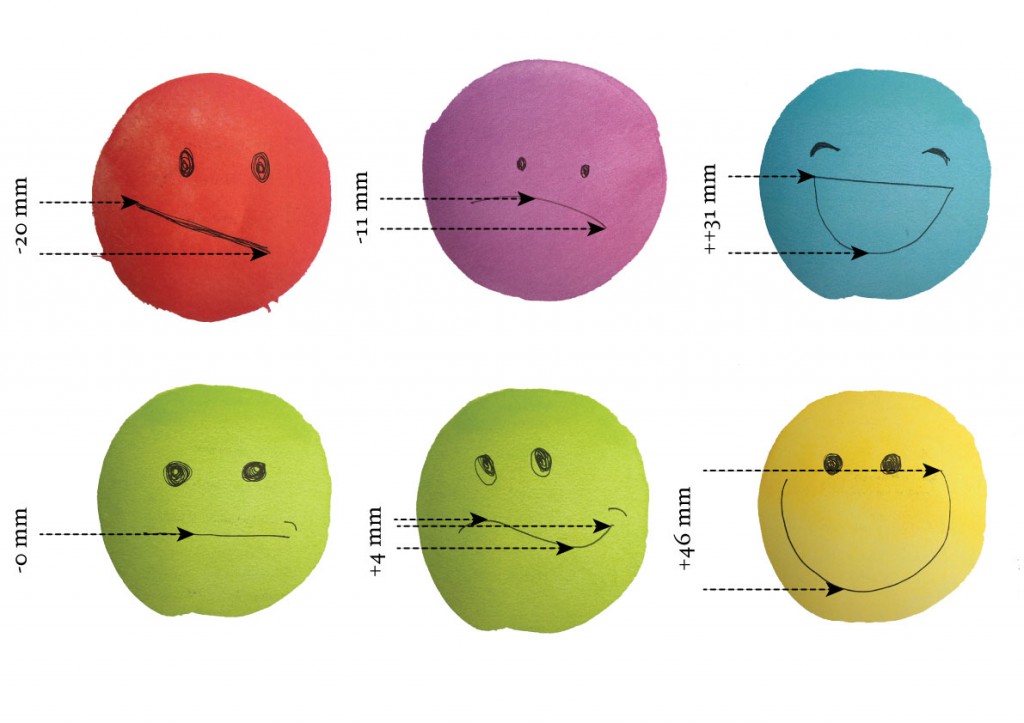Nowadays, virtually anything can be tracked and measured. Smartwatches include a heart rate monitor, can count your steps, and record your sleep patterns. Apps let you log your meals, your fasting zones, your weight, and your calorie expenditure. A timer on your computer can track your productivity. As Gary Wolf, the co-founder of Quantified Self Labs puts it: “Almost everything we do generates data.”
This data is then turned into insights. User reviews allow online platforms to rank anything from books to restaurants and companies. Complex analytics tools let webmasters analyse time spent, clicks, and sources of traffic. Uber puts a number on how good a passenger you are. Tinder has created a desirability rating based on people’s left-to-right ratio of swipes.
Beyond companies, individuals also share an interest in self-knowledge through numbers. The quantified self movement sees thousands of users track their personal data in order to improve their physical or mental wellness. In the age of data abundance, collecting numbers is not a challenge anymore. The question is: what are the numbers that matter for your personal well-being?
From data fetishism to mindful tracking
Data fetishism is defined as an “adoration of hard data.” People may feel a sense of achievement and satisfaction simply from tracking data. The risk with data fetichism is to reduce complex events to simplistic numbers, failing to capture the nuances and dynamics of multi-faceted phenomena. The quantified self movement has been criticised for showing evidence of such data fetishism.
However, “the widespread idea that what draws self-trackers to numerical data is its perceived power of truth and objectivity—a so-called data fetishism—is limiting,” write Tamar Sharon and Dorien Zandbergen, two researchers from the Netherlands. Many self-tracking enthusiasts have a more nuanced relationship with their data, using “self-tracking as a practice of mindfulness, as a means of resistance against social norms, and as a communicative and narrative aid.”
If you are interested in better understanding the factors influencing your personal well-being, how can you make sure to not fall into the trap of data fetishism?
The key is to articulate your motives for tracking specific data points in the first place. For instance, you may want to track your mental health over time so you can identify modulating factors. In that case, regularly taking a validate test such as the General Health Questionnaire or the WHO-5 Mental Well-Being Index may be helpful. Or, you may want to track your sleep in order to feel more rested during the day. It would make sense to use a sleep tracker.
While performing analysis on numbers is easier, not all recorded data has to be structured and numerical in nature. In fact, many benefits of self-tracking lie in creating a space for self-reflection. Ellis Bartholomeus drew a face a day for months in order to better capture her exact mood. She did end up measuring the “facial features” or her smileys in order to uncover trends, which shows how even qualitative data can lead to quantitative insights.

Similarly, if you keep a journal, you could imagine coding the content in a similar fashion as qualitative researchers, to see if interesting themes emerge.
Ultimately, recording personal data for the sake of recording personal data will not help inform ways to live better. Tracking everything without questioning the underlying objective will not magically lead to a happier, healthier, more creative life. The only numbers that matter are the ones which help you optimise for time well spent.
Your well-being multipliers
If “time well spent” seems like a fuzzy expression, it’s because there are many possible definitions. Though, that’s not the problem. The problem is that many people do not proactively define what “time well spent” means to them.
- Go beyond the quantified mind. While some numbers such as hours of sleep, heart rate, and amount of physical activity can tell you a lot about your current levels of well-being, make sure to also pay attention to qualitative data, such as subjective levels of stress, enjoyment at social events, or work motivation.
- Practice metacognitive strategies. Metacognition means “thinking about thinking”—It’s being aware of your own awareness so you can determine the best strategies, as well as when to apply them. When you practice a self-care strategy, stay aware of how it impacts your well-being, and do not hesitate to question whether it is the right strategy for your particular needs.
- Design your own self-reflection tools. Don’t solely rely on pre-formatted templates, structured questionnaires, or specific apps to record the data that matters to you. For example, try creating your own journaling template with questions that are relevant to your personal goals.
- Identify your well-being multipliers. Turn raw data into insights by reviewing your records and identifying useful patterns. Do you feel more creative in the morning? Do your subjective stress levels correlate with big events, or are there any underlying trends? Have recent self-care strategies resulted in an improved overall well-being? Whenever a particular activity seems to improve your quality of life, add it to your list of well-being multipliers. Don’t restrict yourself in terms of the nature of these activities: it can be anything from hanging out with a friend to having a productive day at work.
- Optimise for time well spent. Once you have identified your well-being multipliers, strive to enable as many of them. Block time for the activities you care about. Do more of what makes you happy and healthy. Make space for the moments that matter.
N.B. This article is part of an experimental series of topics prompted by GPT-3. Many thanks to Marc Köhlbrugge for training it to generate the list of topics.
